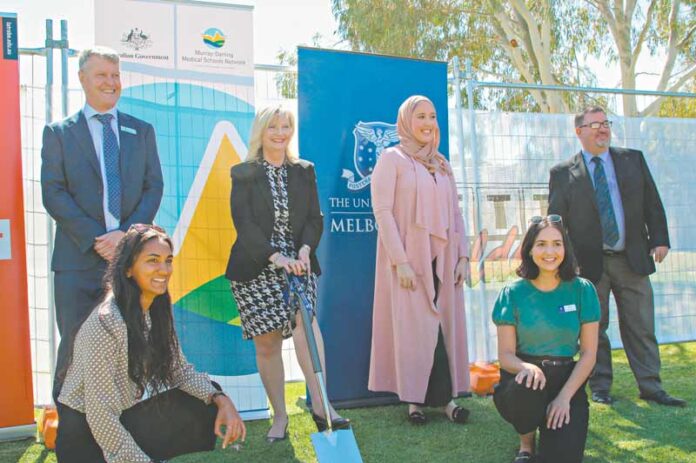
THE University of Melbourne Department of Rural Health, based in Shepparton, is a step closer to realising expansion with construction about to begin on a $6.5M building project.
Local company Moretto Building will construct the student accommodation and expanded teaching spaces which will provide accommodation for up to 30 more students, making it a total of 96 beds and a suite of new teaching and learning facilities that will enhance those already available for use by the local community.
The project is part of a series of programs funded by the Federal Government under the banner of the Murray-Darling Medical Schools Network and has been created to address shortages of doctors in regional and rural areas by training students from the regions, in the regions.
University of Melbourne (Shepparton) has partnered with La Trobe University to create an end-to-end rural medical program.
Students who successfully complete a three-year undergraduate Bachelor of Biomedical Science (Medical) at La Trobe’s Bendigo or Albury-Wodonga campus will gain guaranteed entry into the University of Melbourne’s Doctor of Medicine postgraduate program in Shepparton.
The program will enable medical students and graduates to undertake their studies and training in regional Victoria, eliminating the need for them to move to metropolitan areas.
University of Melbourne Head of the Melbourne Medical School, Professor John Prins, said evidence shows that enrolling students from a rural background and having students undertake long-term rural training, increases the likelihood of rural practice.
“We know that the more time during training that doctors spend in regional areas, the more likely they are to continue their practice there as well,” Professor Prins said.
Construction will begin in March with the intention of housing all the new students for the start of the 2022 academic year.





